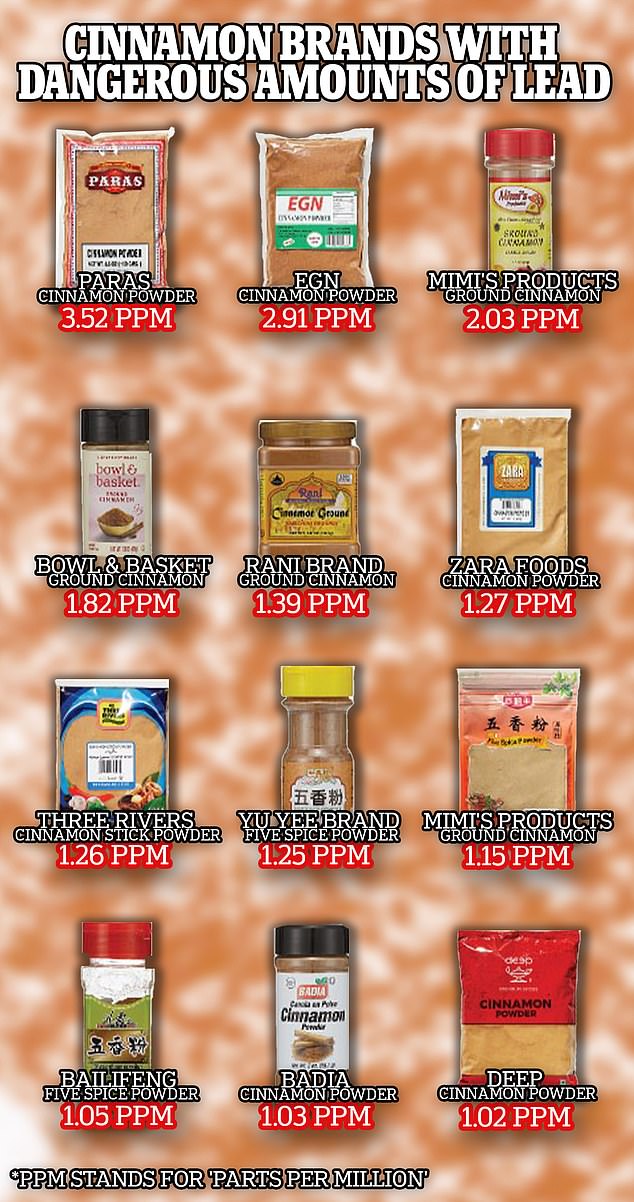FDA warns of MORE kitchen spices with elevated levels of cancer-causing ingredient
The FDA warned against ground cinnamon from Super Brand, pictured here, because of its lead content
Health officials warned against throwing away any more ground cinnamon because of the dangerous levels of toxic metals.
The FDA said Friday that it has added Super Brand ground cinnamon to its list of products containing elevated levels of lead.
The spice, which was sold at an Asian market in Little Rock, Arkansas, was tested by health authorities for toxic metals.
The samples were reviewed by the FDA, which determined that “exposure to this product may be unsafe.”
The cinnamon, which was distributed by California-based IHA Beverage Commerce, contained the highest concentration of lead of any of the dozens of products on the FDA’s warning list.
Each pouch contains 6.6 to 7.7 parts per million (ppm) of lead, seven times more than the one ppm needed to trigger a recall in New York, the only state that regulates heavy metals in spices.
It hasn’t been recalled yet.
The FDA urged consumers to “throw away and not purchase” these ground cinnamon products. They also recommended voluntary recalls of every product on the warning list.
Researchers have warned that just a quarter teaspoon of much spoiled cinnamon can have serious health consequences, especially in young children, as lead can harm brain development.

Several brands of cinnamon have been recalled because they contain lead, a toxic metal

Earlier this year, watchdog Consumer Reports analyzed the lead content in various ground cinnamon products. These brands had the highest amounts
Lead is naturally present in the Earth’s crust, meaning it can be present in the soil where spices are grown.
In addition, the FDA previously said it is investigating whether lead was intentionally added for financial gain.
Karen Everstine, technical director of FoodchainID, the food supply chain watchdog, said it is essentially a money-making scheme. ‘The intention is not to make people sick. No one wants to do that because they will get caught,” she said. “What they want to do is make money.”
The FDA and CDC both warn that there is no safe level of lead consumption.
Once consumed, lead can travel through the blood throughout the body and lodge in soft tissues such as the kidneys, liver or lungs, damaging these organs.
At higher doses or with frequent exposure, it has been linked to behavioral problems, growth problems and learning problems in children.
In addition, the International Agency for Research on Cancer (IARC) has classified it as a probable carcinogen, meaning that high exposure is likely to cause cancer, but there is no conclusive evidence yet.
Short-term exposure to lead can lead to symptoms such as headaches, abdominal pain, vomiting and anemia.
